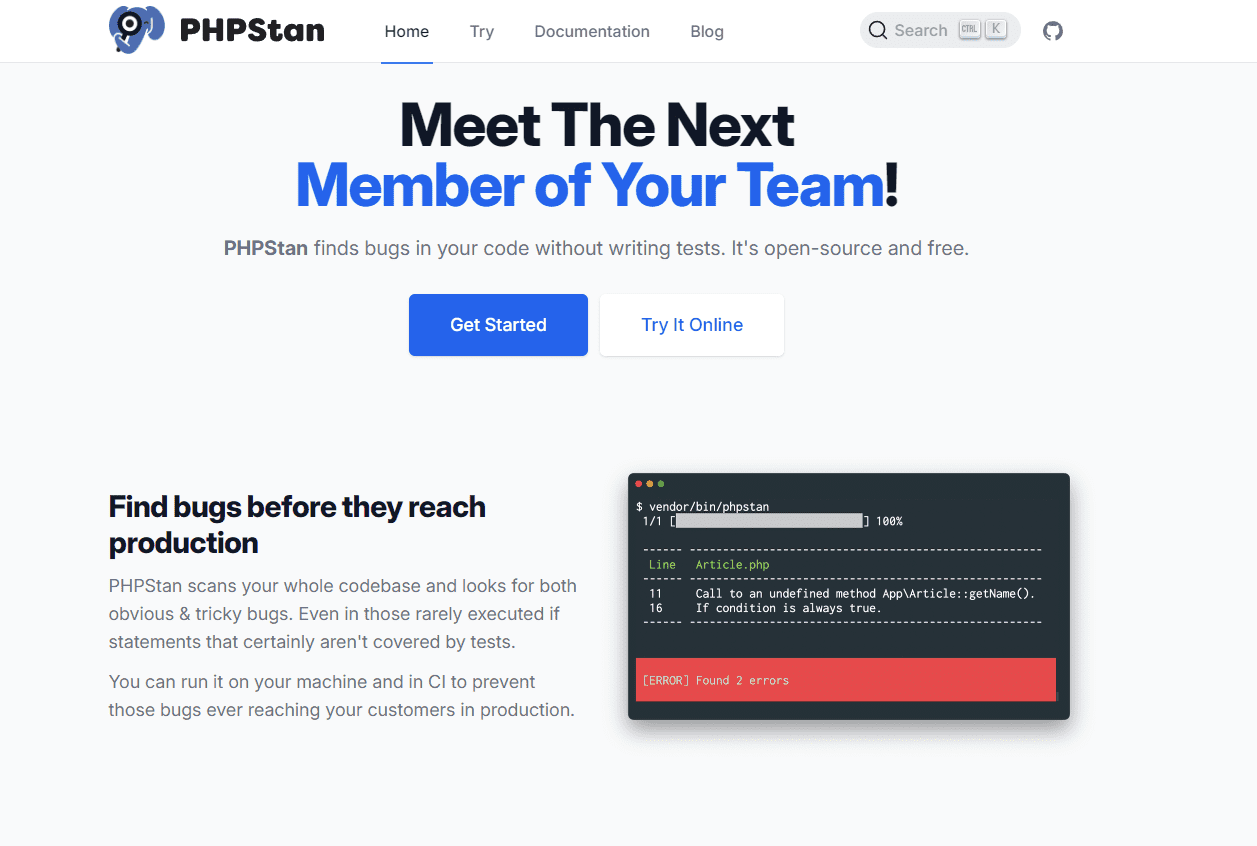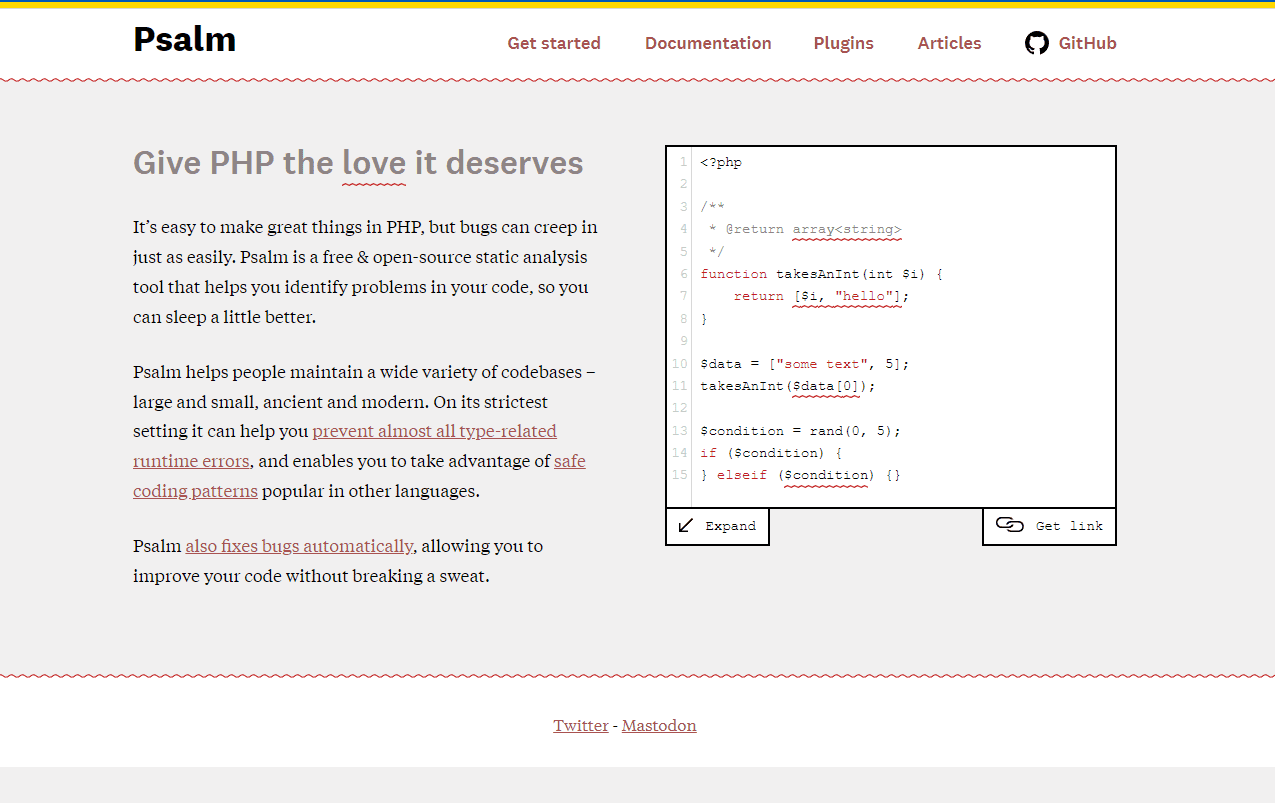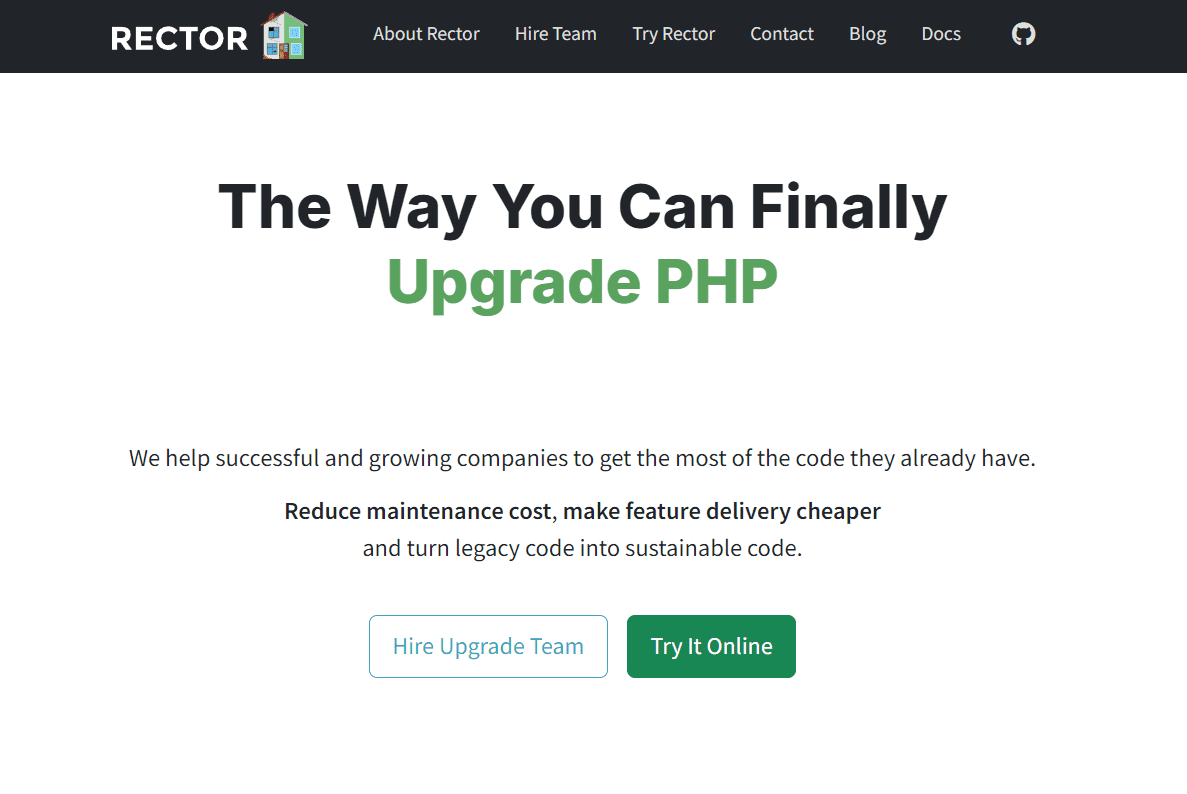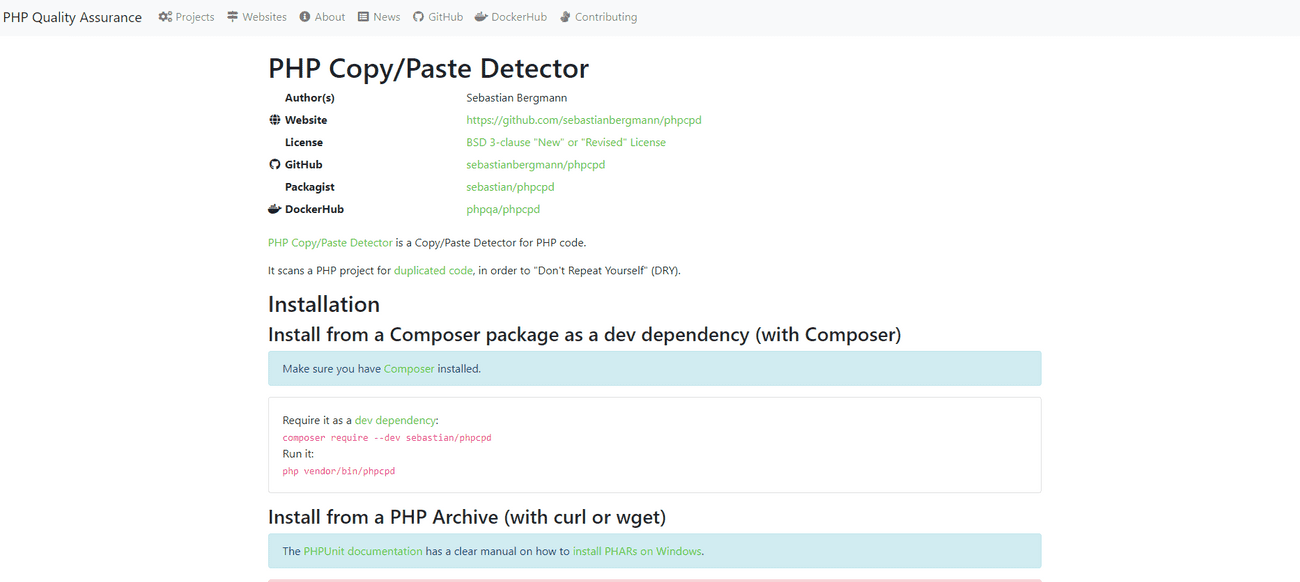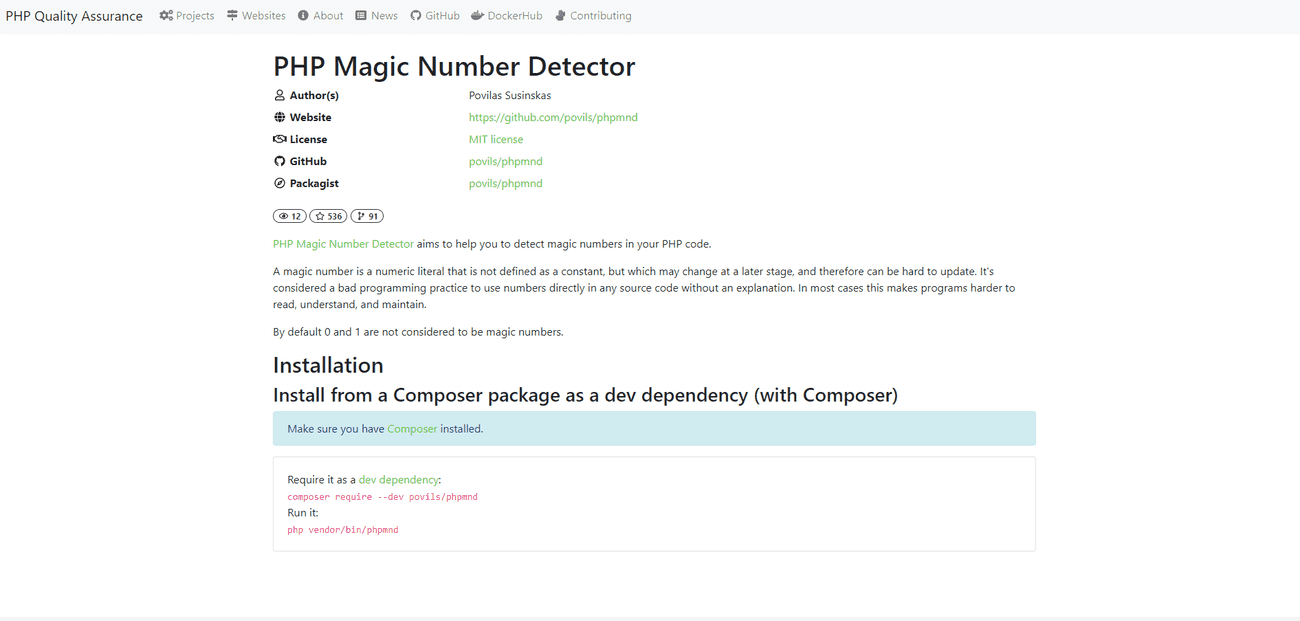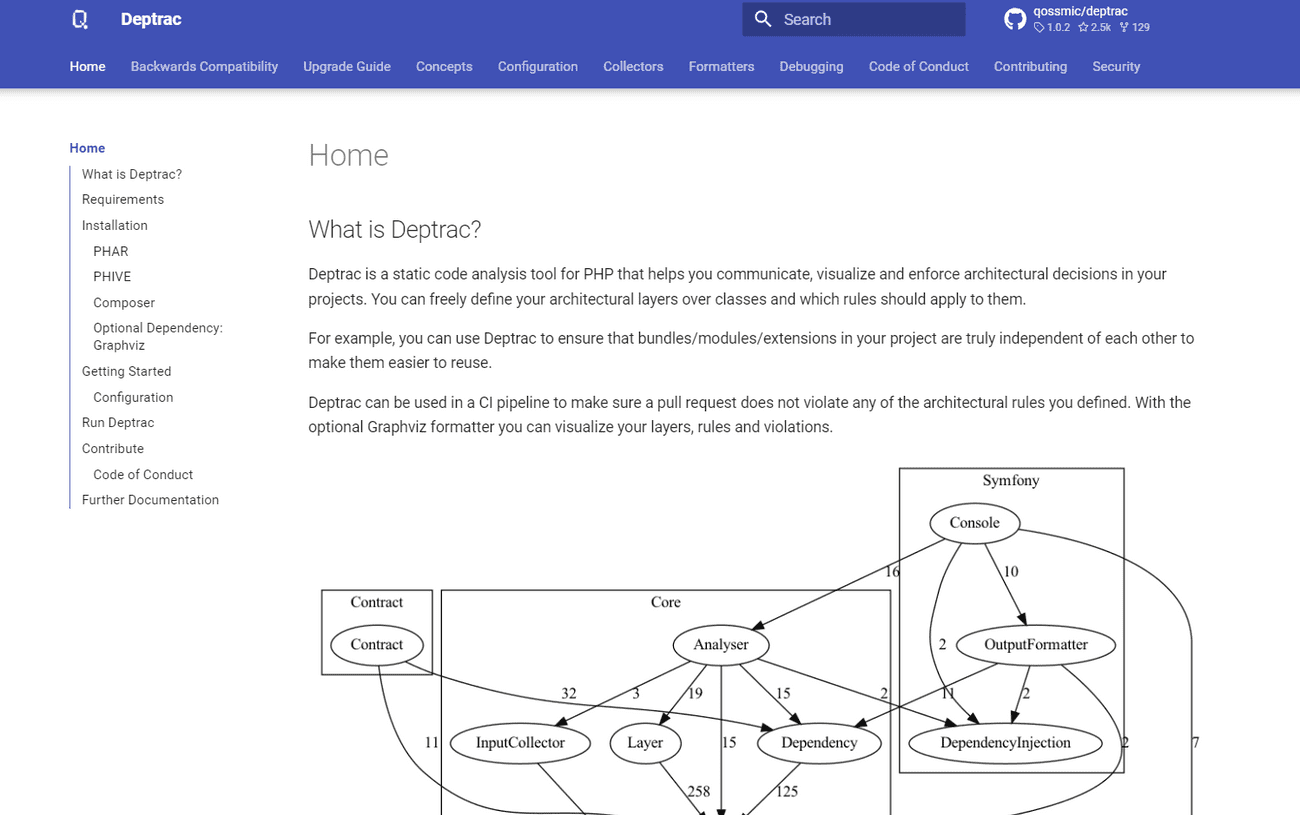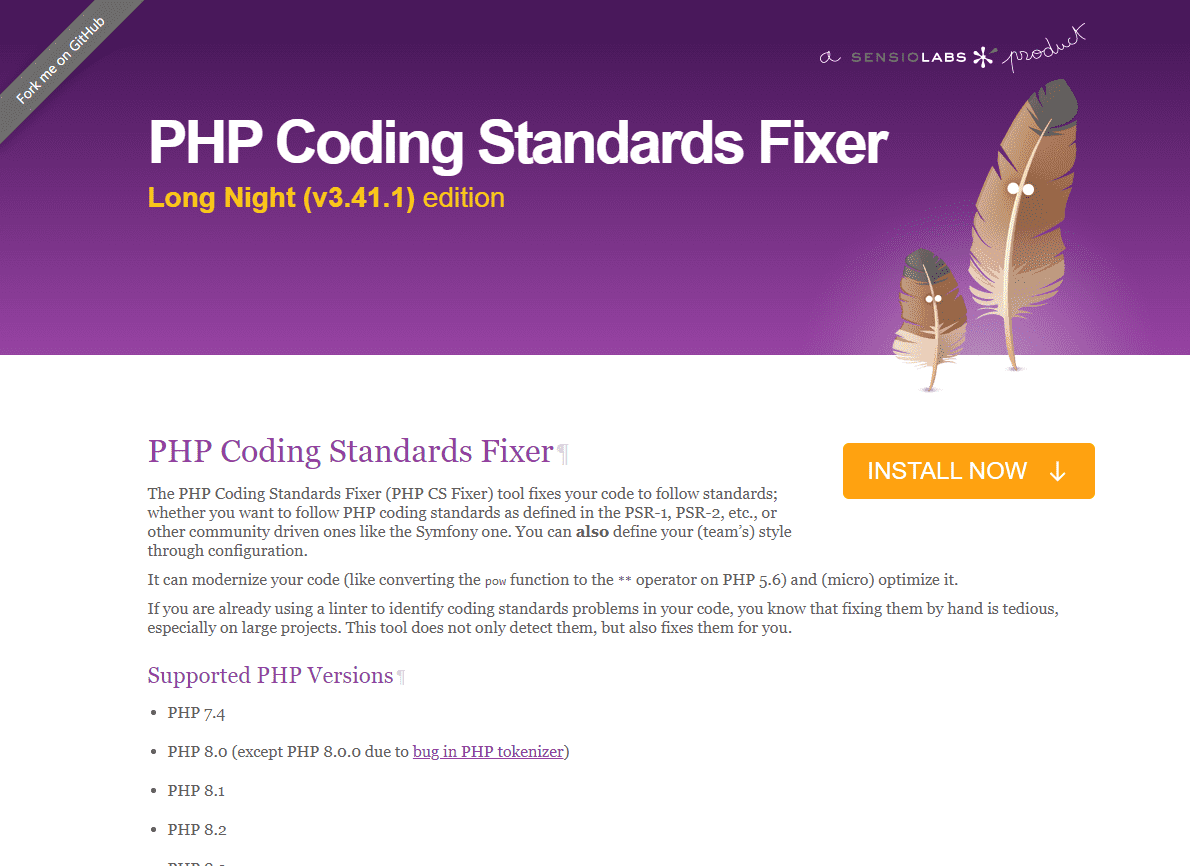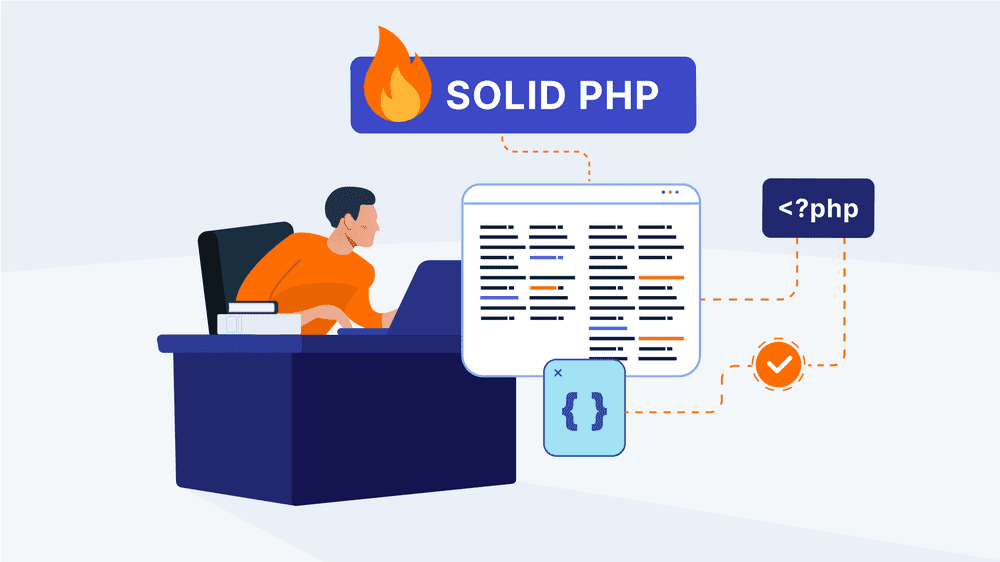Static Analysis Tools for PHP
The right tools are crucial for PHP developers aiming to enhance code quality and maintainability. Static analysis tools are the unsung workhorses of the development process, catching bugs and enforcing standards before they escalate into larger issues.
But what are static analysis tools, why does it matter, and which tools should you use to upgrade your workflow?
What are Static Analysis Tools and Why Does it Matter?
Static analysis tools are instrumental in modern PHP development, serving as automated reviewers of your codebase. They scrutinize the source code without executing it, identifying potential issues before the code is run. In PHP, a language known for its flexibility and rapid development capabilities, these tools provide a critical check against common pitfalls.
Static analysis tools in PHP examine code for a variety of issues, including syntax errors, potential bugs, performance bottlenecks, and adherence to coding standards. They are particularly adept at detecting issues that are not immediately apparent, such as type mismatches, unused variables, or unreachable code. This preemptive examination becomes increasingly vital as PHP applications grow in complexity and scale.
Benefits of Static Analysis Tools
- Early Bug Detection: One of the primary advantages of static analysis is its ability to catch bugs early in the development cycle. By identifying issues before the code is deployed or even reaches the testing phase, these tools save time and resources. Early detection means fewer bugs in production, leading to more stable and reliable applications.
- Enforcing Coding Standards: PHP, with its diverse community, has a variety of coding styles and practices. Static analysis tools help enforce a consistent coding standard across a project, making the code more readable, maintainable, and less prone to errors.
- Security Enhancements: Security is a paramount concern in web development. Static analysis tools can detect common security vulnerabilities in PHP code, such as SQL injection, cross-site scripting (XSS), and others. By highlighting these vulnerabilities early, developers can address security concerns proactively, fortifying the application against potential attacks.
- Technical Debt Management: Over time, projects accumulate technical debt – shortcuts and compromises that make future changes harder. Static analysis tools can identify complex, convoluted, or risky pieces of code that might contribute to technical debt, enabling teams to refactor and improve them systematically.
Incorporating static analysis tools into Continuous Integration (CI) pipelines is a widely recognized best practice, essential for any serious PHP development workflow. These tools perform comprehensive analysis of code, identifying potential issues early in the development cycle, thereby enhancing code quality, security, and maintainability.
By integrating these tools into the CI process, developers receive immediate feedback on their code, ensuring continuous improvement and adherence to standards. This practice is recommended universally, regardless of specific DevOps methodologies.
Things to consider when selecting a static analysis tool
Selecting an appropriate set of static analysis tools for PHP development is crucial for enhancing the efficiency and effectiveness of your development process. Here are 5 key factors to consider:
1. Support for PHP Versions and Coding Standards:
Importance: When selecting static analysis tools for PHP development, it's crucial to consider their compatibility with the range of PHP versions used in your projects, including older versions like PHP 5, especially if you are working on a legacy application. This compatibility ensures that the tool accurately understands the various syntax nuances across different PHP versions.
Impact: Using a tool that fully supports your PHP version ensures accurate analysis, reducing false positives and negatives. It also helps in adhering to PHP-specific coding standards.
2. Integration Capabilities:
Importance: Ease of integration with existing development tools and workflows, like IDEs, version control systems, and CI/CD pipelines, is vital.
Impact: Seamless integration streamlines workflows, enabling real-time feedback and automated checks. It minimizes disruption and enhances developer productivity.
3. Comprehensiveness of Analysis:
Importance: The tool should cover a wide range of issues, from syntax errors to complex logical bugs, and be able to detect security vulnerabilities.
Impact: A comprehensive tool ensures thorough code vetting. This depth reduces the need for multiple tools and helps maintain a high standard of code quality and security.
4. Performance Impact:
Importance: The performance of a static analysis tool, particularly in terms of analysis speed and resource consumption, becomes even more critical when dealing with large-scale projects, such as those with millions of lines of code (LOC). Our experience includes a project with 3 million LOC where certain tools struggled due to the code's complexity and size. Therefore, it's essential to choose tools capable of efficiently handling extensive, potentially intricate codebases without causing bottlenecks in the development cycle. This ensures that the development remains agile and responsive, even in the most challenging project environments.
Impact: Efficient performance prevents bottlenecks in development cycles. Tools that are fast and light on resources keep the development agile and responsive.
5. Customizability and Extensibility:
Importance: The ability to customize rules and extend functionality to suit specific project needs is crucial.
Impact: Customizable tools can adapt to the unique standards and practices of your project, enhancing the relevance and effectiveness of the analysis.
Enhancing PHP Code Quality with Static Analysis Tools - A Comprehensive List
Optimizing code quality in PHP development requires a strategic selection of static analysis tools. Each tool offers unique functions, benefits, and fits differently into various types of projects. Let’s delve into our top 7 tools.
1. PHPStan:
Function: Deep Codebase Analysis and Bug Detection
PHPStan has been a frontrunner in PHP code analysis, particularly notable for its inception before PHP introduced native-type support. This early adoption allowed it to gain significant popularity, as it provided a much-needed solution for type safety in PHP. Besides its robust analysis of type safety and logical inconsistencies, PHPStan offers a comprehensive range of checks, making it a valuable tool even as PHP evolves. Its ability to identify deep-rooted, elusive bugs without executing code remains a key reason to integrate it into PHP workflows.
Benefits: Enhanced Code Reliability and Forward Compatibility
Emphasizing robust type checking, PHPStan significantly mitigates the risk of runtime errors. In PHP, a dynamically typed language, runtime errors are often elusive and difficult to trace. PHPStan's preemptive detection of such errors not only saves time during the development cycle but also enhances the overall reliability of the application.
Its compatibility with the latest PHP versions is another key benefit. This ensures that your codebase is not only free from current issues but also adheres to the latest PHP standards and practices. It future-proofs your code, making subsequent upgrades and transitions smoother.
Project Fit: Ideal for Complex and Evolving PHP Projects
PHPStan is particularly beneficial for large-scale PHP projects where code reliability and quality is non-negotiable. In environments where the cost of failure is high, such as in financial or data-sensitive applications, the assurance of PHPStan's thorough analysis is invaluable.
Projects undergoing a transition to stricter typing standards, or those incorporating complex business logic, stand to benefit significantly from PHPStan's capabilities. As PHP projects evolve to adopt more robust and modern practices, PHPStan serves as a vital tool in ensuring that these transitions do not introduce new vulnerabilities or errors.
2. Psalm:
Function: Advanced Type Safety and Efficiency Analysis
Psalm distinguishes itself as a static analysis tool by focusing intently on type safety and efficiency in PHP code. It goes beyond mere detection of type errors, delving into the intricacies of how types are used and interact within the codebase. This in-depth analysis makes Psalm adept at uncovering type-related errors that other tools might overlook.
The tool also evaluates the efficiency of the code, identifying areas where improvements can be made. This includes detecting unnecessarily complex expressions, redundant code, and potential optimizations that could streamline the execution of the code. Psalm's ability to suggest concrete improvements makes it an invaluable asset for refining and enhancing PHP code.
Benefits: Comprehensive Error Detection and Code Optimization
Psalm offers a more advanced level of type safety analysis compared to PHP's built-in typing. While PHP's native type system provides basic type checks, Psalm's analysis is more comprehensive, capable of identifying subtler, more complex type-related issues that PHP's built-in system might not catch. This is particularly beneficial in larger and more intricate codebases, where maintaining a robust type system is crucial for minimizing runtime errors and ensuring code reliability. Psalm's in-depth analysis augments PHP's typing capabilities, making it a valuable tool for developers seeking to enhance code quality and stability.
Psalm's suggestions for code optimization are a standout feature. It provides actionable insights that go beyond error detection, guiding developers towards writing more efficient and performant code. This aspect of Psalm is crucial in maintaining high-quality code that not only works correctly but also performs optimally.
Project Fit: Ideal for High-Efficiency and Complex PHP Projects
Psalm is particularly well-suited for projects that heavily rely on PHP's type system. Projects that involve complex data structures, advanced object-oriented programming, or intricate business logic can benefit greatly from Psalm's rigorous type analysis.
3. Rector:
Function: Automation of Code Upgrades and Refactoring
Rector serves as a cutting-edge tool in the PHP ecosystem, primarily designed to automate the process of code upgrades and refactoring. It's adept at scanning and transforming legacy PHP code to align with modern coding practices and standards.
The tool specializes in understanding the intricacies of PHP syntax and structure across different versions. This capability allows Rector to intelligently update outdated code constructs and adopt new features that enhance the code's efficiency and readability.
Benefits: Time Efficiency and Risk Reduction in Code Modernization
One of the primary benefits of Rector is the significant time savings it offers. The automation of code upgrades that would otherwise be manual, labour-intensive, and error-prone is a major advantage. This efficiency is particularly beneficial in large codebases where manual refactoring is not feasible.
By automating the refactoring process, Rector minimises the risk of human error during manual code changes. Its systematic approach ensures that upgrades are consistently applied throughout the codebase, maintaining code quality and integrity.
Project Fit: Ideal for Evolving and Scaling PHP Projects
Rector is particularly essential for projects that are in the midst of technology shifts. This includes migrating to newer PHP versions, which is a common challenge for many legacy PHP applications. Rector facilitates a smoother and more reliable transition to modern PHP versions.
Projects undergoing modernization or architectural transformations can greatly benefit from Rector, particularly due to its integration with frameworks like Symfony. Rector's usefulness extends beyond mere syntax updates; it provides additional rules, such as those offered by the Rector-Symfony set, enhancing alignment with the paradigms of new frameworks. These specific rulesets allow for a more tailored refactoring process, ensuring the code structure is not just updated but also optimized for the framework's best practices.
4. phpcpd (Copy/Paste Detector):
Function: Detection of Duplicated Code
phpcpd stands as a specialized tool in the PHP development toolkit, focusing exclusively on the detection of duplicated code within a codebase. Its primary function is to scan through PHP files to identify blocks of code that are repeated, a common issue in software development.
The tool employs sophisticated algorithms to pinpoint not just exact copies, but also instances where code is very similar, even if not identical. This capability is crucial in uncovering subtle instances of duplication that might not be immediately obvious.
Benefits: Encouraging Clean and Efficient Code
The primary benefit of using phpcpd is its contribution to a cleaner, DRY (Don't Repeat Yourself) compliant codebase. By identifying duplicated code, it prompts developers to refactor and consolidate these segments, leading to more streamlined and efficient code.
Reducing redundancy has direct implications on code maintainability. A codebase with less duplicated code is easier to understand, modify, and extend. This is particularly beneficial in terms of bug fixing and feature development, as changes need to be made in fewer places.
Project Fit: Essential for Large-Scale and Collaborative Environments
phpcpd is especially vital in large-scale and collaborative environments. It becomes a tool of choice during project handovers, providing deep insights into the project's development quality. Its effectiveness is also apparent when working with less experienced developers, serving as a safety net to catch duplications that might be overlooked during code reviews.
While experienced teams might find it less frequently detects issues, maintaining phpcpd in CI pipelines is still recommended. This ensures adherence to the DRY principle, safeguarding against occasional oversights and preserving the codebase's integrity and cleanliness, regardless of team experience levels.
5. phpmnd (PHP Magic Number Detector):
Function: Identification of 'Magic Numbers' and Strings
phpmnd is a nuanced tool designed specifically for the PHP environment, focusing on the detection of 'magic numbers' and strings within the code. Magic numbers are hard-coded values that appear without context or explanation, often making the code difficult to understand and maintain.
The tool efficiently scans PHP code to identify these magic numbers and strings, flagging them for review. It not only detects numeric literals but also string literals that might be better served as named constants or configurable parameters.
Benefits: Enhanced Readability and Maintainability
By encouraging the replacement of magic numbers with named constants, phpmnd significantly improves the readability of the code. This practice makes the code more self-explanatory, as constants typically have descriptive names that convey their purpose and usage.
The tool’s emphasis on clarity directly impacts the maintainability of the codebase. When magic numbers are replaced with named constants, any future changes to these values can be made in a single location, reducing the risk of errors and inconsistencies.
Project Fit: Ideal for Projects Prioritizing Longevity and Team Collaboration
Like phpcpd, phpmnd is highly beneficial during project handovers, offering a quick assessment of code quality and clarity. It's particularly useful in long-term projects where code clarity is essential for sustainability. For existing teams, incorporating phpmnd into CI pipelines serves as a succinct, efficient check, ensuring that magic numbers are identified and eliminated.
This practice aids in maintaining a clear, manageable codebase, beneficial for projects with frequent team changes or collaborations.
6. Deptrac / phpat / phparkitect:
Function: Architectural Integrity and Layer Enforcement
Deptrac, phpat, and phparkitect are tools engineered to uphold and enforce clean code architecture within PHP projects. Their primary function revolves around the establishment and maintenance of clear boundaries between different software layers and components.
These tools analyze the codebase to ensure that dependencies and interactions between various parts of the system adhere to the predefined architectural rules. This involves checking for unwanted coupling between layers or modules and flagging violations of architectural norms.
Benefits: Long-Term Codebase Health and Simplified Maintenance
By maintaining strict architectural boundaries, Deptrac, phpat, and phparkitect play a crucial role in preventing architectural erosion. This erosion often occurs gradually as projects evolve, leading to increased complexity and intertwined dependencies which can become maintenance nightmares.
These tools aid in preserving the original, intended architecture of the application, ensuring that it remains clean, organized, and adherent to best practices. This discipline is essential for the long-term health and agility of the codebase.
Project Fit: Essential for Complex and Scalable Systems
Deptrac, phpat, and phparkitect are particularly well-suited for complex, multi-layered projects where maintaining architectural integrity is crucial. In such projects, the risk of architectural drift is high, and these tools provide a necessary check against it.
They are ideal for projects that are expected to scale or evolve over time. As the system grows, maintaining a clean and well-defined architecture is vital to manage complexity and ensure that new components integrate seamlessly.
7. php-cs-fixer / EasyCodingStandard:
Function: Automated Code Formatting and Style Consistency
php-cs-fixer and EasyCodingStandard are tools dedicated to maintaining and enforcing coding style standards in PHP projects. Their primary function is to format code and perform style consistency checks automatically.
These tools are adept at identifying and correcting deviations from predefined coding standards, such as PSR-1/2, Symfony, or custom guidelines set by the development team. They can adjust various aspects of coding style, including indentation, line spacing, and bracket positioning, ensuring that the code adheres to the chosen style guide.
Benefits: Enhanced Code Quality and Efficient Review Process
By ensuring consistent coding styles, php-cs-fixer and EasyCodingStandard significantly streamline the code review process. Reviewers can focus on the logic and quality of the code rather than getting bogged down in style inconsistencies or subjective style preferences.
Consistent coding style reduces the cognitive load on developers. When the codebase follows a uniform style, it becomes easier to read, understand, and navigate, leading to increased developer productivity and reduced onboarding time for new team members.
Project Fit: Ideal for Collaborative and Standard-Driven Environments
php-cs-fixer and EasyCodingStandard are invaluable tools for any team size, from small groups to large collaborations, ensuring adherence to coding standards. While these tools are essential in larger teams, where maintaining consistency across a complex codebase is challenging, their benefits are also significant in smaller teams.
Even in groups of 3-4 developers, integrating these tools into the IDE and/or CI processes helps maintain a high level of code quality and uniformity, crucial for efficient and cohesive development.
Static Analysis Tools That Matters
To wrap up, leveraging static analysis tools in PHP development is not just best practice—it's essential for any serious codebase. Recognizing that a single tool may not cover all aspects, a well-chosen set of tools is often the optimal approach.
For an extensive toolkit, at jakzal/phpqa on GitHub offers a good range of tools and is a repository that we often use.
Looking to work with developers who care about ensuring clean, efficient and secure PHP code? Write us a message, and we will be happy to get back to you with an answer as soon as possible.
